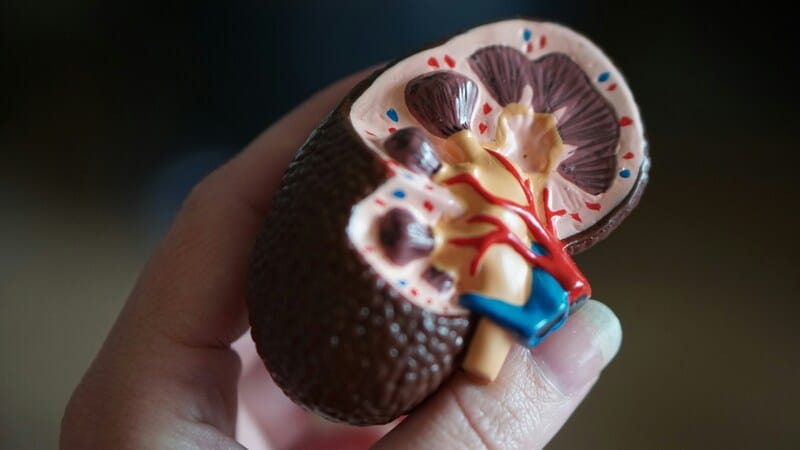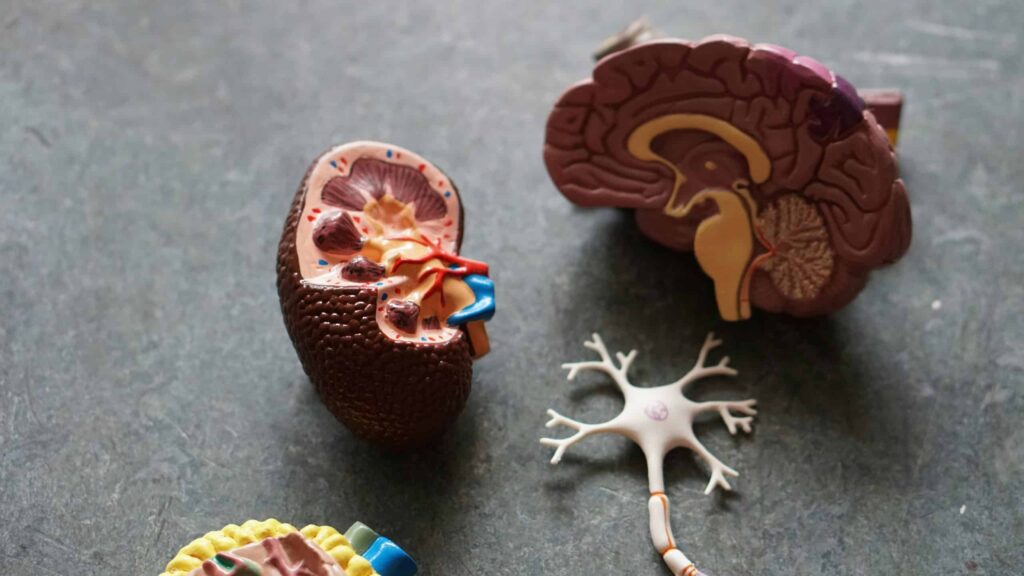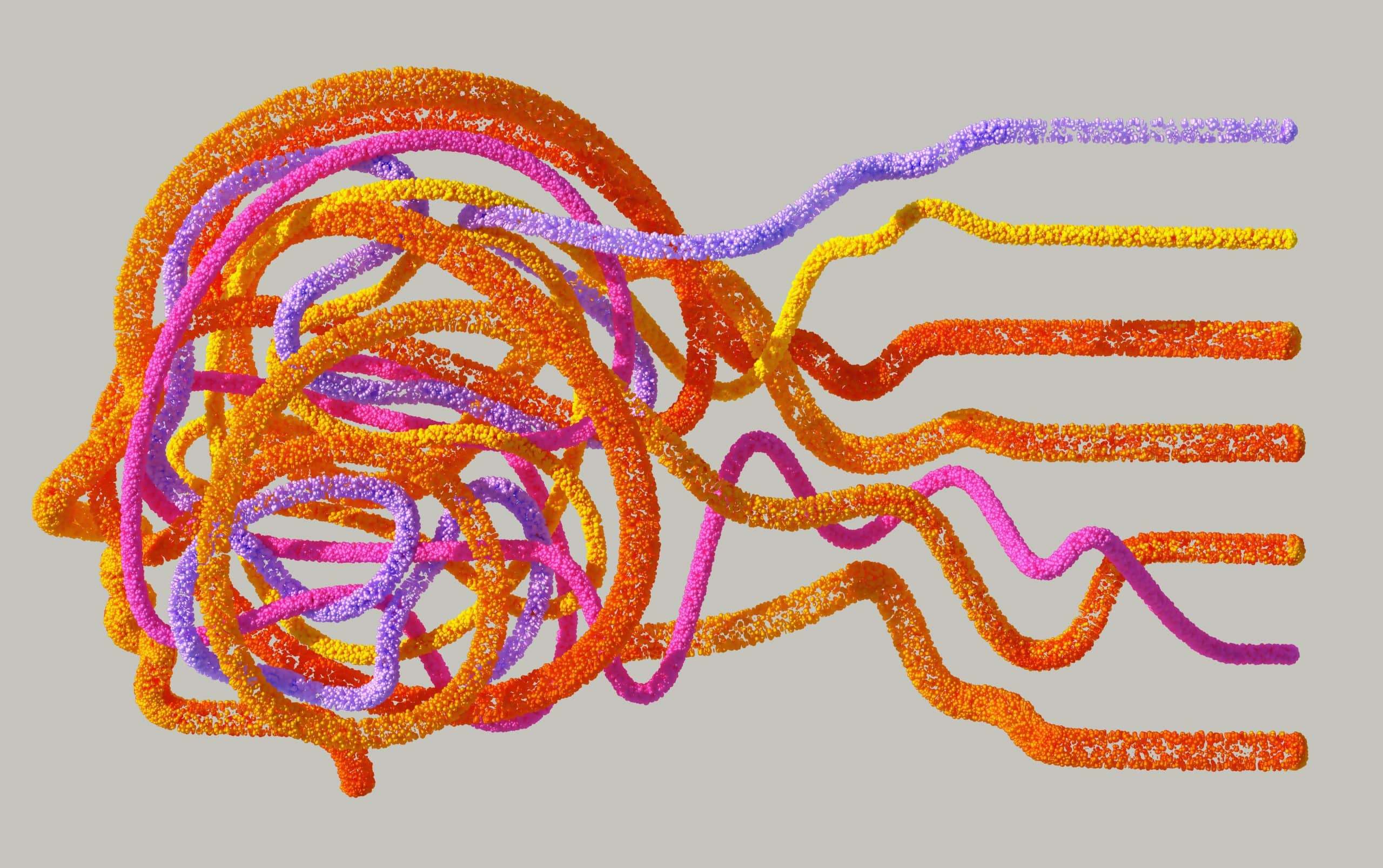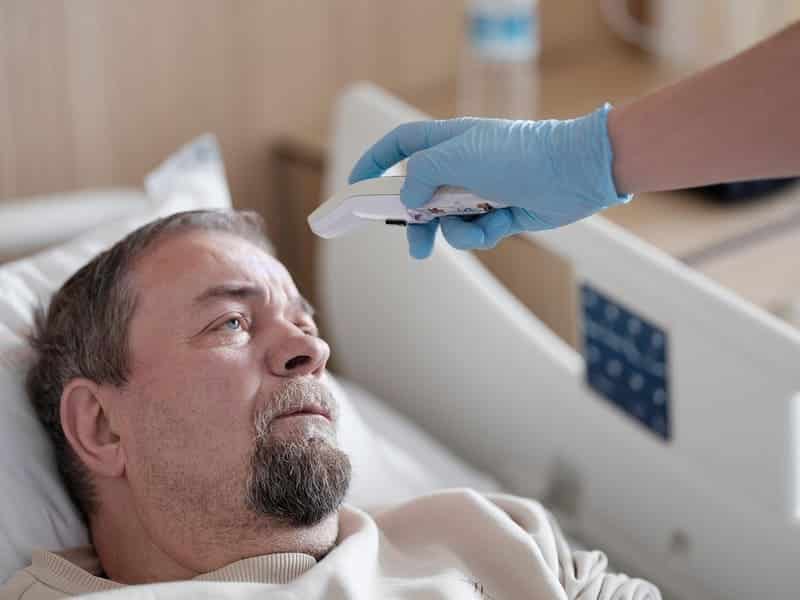A person experiences chronic Kidney Disease (CKD) when their kidneys slowly degrade and stop functioning. Due to this gradual loss, the kidneys can’t effectively filter fluids or waste from the blood. As a result, the fluid and waste along with electrolytes build up to dangerous levels within the body. Even treatment can be challenging to stop kidney damage from progressing, possibly resulting in end-stage kidney failure. At this point, a person may need a kidney transplant or dialysis to survive.
Symptoms of Chronic Kidney Disease
Unfortunately, a person with CKD develops symptoms gradually as their kidney damage increases over time. Due to the excess buildup of waste, fluid, and electrolytes, an individual may struggle with health issues such as vomiting, nausea, and even a loss of hunger. Also, common symptoms one may experience are muscle cramps, fatigue, and their feet and ankles swelling. More severe cases may have someone struggling with chest pain or shortness of breath, which occur once fluid builds up in the lungs or near the heart. Moreover, an individual can get high blood pressure due to CLD which they may have a difficult time controlling.
To make matters worse, most symptoms of CKD are non-specific, which means they may be caused by an underlying condition. Since the kidneys can adapt and compensate for their loss of function, signs may not appear in the early stages. This means that even when a person is impacted by these symptoms, the damage tends to be irreversible. That’s why early detection and treatment are important to one’s health as slowing the disease’s progression is the main priority.
Causes of Chronic Kidney Disease

CKD is likely to develop once a condition affects the kidneys, impairing their function. Additionally, this kidney damage can worsen and persist for months or years. As for possible causes? Health issues such as high blood pressure, type 1, and type 2 diabetes are high on the list. Likewise, inflammation of the kidneys’ filtering units known as glomerulonephritis can potentially lead to CKD.
Other causes of this particular disease include polycystic kidney disease and interstitial nephritis. Not only that but conditions like kidney stones or an enlarged prostate can cause urinary tract obstructions that may contribute to CKD too. Someone who has suffered from recurrent kidney infections such as vesicoureteral reflux and pyelonephritis may also lead to CKD.
Risks of Chronic Kidney Disease
An individual risks developing this kidney disease due to several factors, which include hypertension, diabetes, and heart disease. Another risk of KCD mostly consists of one’s lifestyle choices, particularly around obesity and smoking. Certain demographic factors may heighten one’s risk of getting kidney disease such as being Asian, Native, and African American. Likewise, age plays a factor as kidney disease impacts older people the most.
Despite its name, CKD can affect nearly every area of the body outside of the kidneys, which may lead to various health complications. For instance, a person with fluid retention may suffer from other health issues such as swelling in arms and legs, and high blood pressure. Also, they may have problems with fluid building up in their lungs called pulmonary edema. With OKD, someone may get hyperkalemia, which is a condition where they receive too much potassium. Due to this sudden increase, they may suffer potentially fatal heart damage.
To ruin the fun, CKD can even affect an individual’s sexuality by inducing erectile dysfunction or decreasing one’s sex drive. This can lead to infertility issues or damage to the body’s central nervous system, giving someone issues with concentrating, seizures, or personality changes as a result. What’s more? A compromised immune response will make one susceptible to more infections. Furthermore, CKD harms pregnant women since those who have it have a higher chance of facing health risks that may endanger the mother and fetus.
Final Thoughts
By reducing the risk of developing CKD, it promotes the importance of protecting the kidneys. These vital organs are vital to everyday life and should remain in the utmost shape and health by taking proactive steps. For instance, maintaining a healthy weight is beneficial in combating kidney disease, therefore one should engage in physical activity and follow a good diet. Not only that but one should also consult their doctor if CKD is perceived or currently have. Ultimately, frequent check-ups give you the best chance at preventing or combating kidney disease.
Disclaimer: This article is intended simply to provide information. It does not replace the medical advice of a physician or other medical professional. Please speak with your doctor or therapist if you have any questions or concerns.










